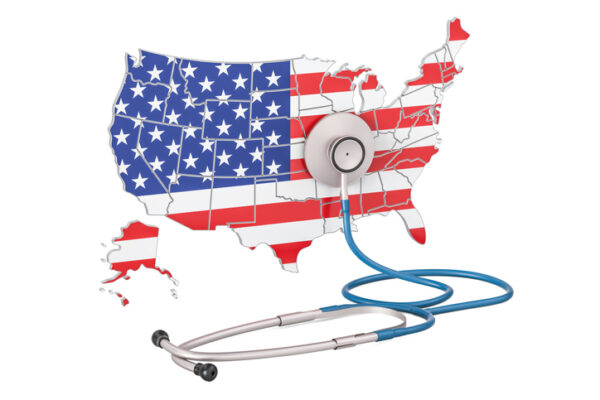
The intersection of the pharmaceutical supply chain and national security has been front and center for years with on account of multiple events: such as the widespread shortages of IV fluids in the aftermath of Hurricane Helene, made-in-China contrast media due to pandemic lockdowns, and generic oncology medications after a Food and Drug Administration (FDA) inspection of an Indian manufacturer.
More recently, a Department of Commerce section 232 investigation, an Executive Order shoring up domestic manufacturing, and looming threats of tariffs have raised eyebrows regarding the strength of our nation’s pharmaceutical supply chain and whether it can truly weather preventable shocks.
The answer is no.

NEMT Partner Guide: Why Payers and Providers Should Choose MediDrive’s TMS
Alan Murray on improving access for medical transportation.
Americans can forgo purchasing consumer goods or other items subject to tariffs for the period necessary for market forces to adjust and meet demand. In contrast, healthcare supplies have a direct correlation to the safety and national security of Americans as any disruption to availability jeopardizes the health of our nation. Americans cannot forego access to lifesaving medications.
Pharmaceuticals are not your average commodity, and it is important to note the following:
- All medications are not created equal from a national security perspective. While medications provide a level of clinical benefit to patients, few are deemed essential by the FDA and Department of Defense (DOD) such that an inability to access such medications would result in catastrophic outcomes for Americans and threaten our national security.
- Most medications deemed essential by the FDA and DOD are generic medications that are often prone to drug shortages.
- Pharmaceutical manufacturing is a highly regulated and complex process that takes significant financial investment and time. The repatriation of the pharmaceutical supply chain cannot occur overnight.
- The availability of the medication delivery mechanism – such as needles, syringes, glass vials, rubber stoppers, IV fluid bags – can also impact the availability of medications.
To illustrate challenges with medications deemed critical for national security and their current manufacturing footprint, it is easy to highlight examples:
- Sodium bicarbonate injection is used for urgent treatment of cardiac emergencies and has been prone to shortages since 2017. Since then, public and private investments have enabled domestic manufacturing of sodium bicarbonate to now account for over 97 percent of U.S. patient utilization. While predominantly manufactured in the U.S., the product remains at risk of shortage. This is a key example to demonstrate that domestic manufacturing alone does not equate to product availability and more investments are necessary to create resilient domestic production sources that can meet our nation’s needs.
- Fentanyl citrate is an essential medication used for its analgesic and anesthetic properties that has been prone to shortage since 2012. While there are several domestic manufacturers of the finished dose and active pharmaceutical ingredients (API), the key starting materials – poppy seeds – are primarily grown in Afghanistan and Australia which are then transported primarily to China for processing. This creates an upstream overreliance on, and production bottleneck by, foreign countries. Addressing the national security risk associated with fentanyl will require investments to move key starting material processing to the U.S. as well as agricultural investments to grow poppy seeds in the U.S.
- Cephalosporin antibiotics refers to a class of medications that are used to treat a wide variety of bacterial infections and have been prone to shortages since 2015. Cephalosporin antibiotics have no known domestic manufacturers of the finished dose and there are two predominant API manufacturers located in Italy and China. Although Italy is traditionally considered a U.S. ally, it imposed export embargoes on medical supplies during the pandemic. This demonstrates that overreliance on foreign countries for our essential medicines extends beyond China.
While the thoughtful and targeted use of tariffs can boost supply chain resiliency in the long-term, material increases in tariffs on pharmaceuticals coupled with rapid implementation timelines can result in unintended consequences that increase costs and shortages in the short-term. Any unified trade policy on pharmaceuticals must ensure that overarching supply chain resiliency goals are met while minimizing the downstream impact to patient care. Therefore, the Administration must:
- Develop a targeted approach to tariff implementation on pharmaceuticals that considers medications deemed essential by the FDA and DOD, separately from all other medications, due to their direct impact on national security;
- Provide a slow and steady glidepath approach to tariff implementation on pharmaceuticals to help ensure that both manufacturers and healthcare providers have sufficient time to respond and adapt to new tariffs while continuing to deliver essential healthcare services effectively;
- Clarify the specific pharmaceutical categories that are or are not subject to tariffs, including clear definitions for the components of drugs subject to tariffs as well as the intersection of drugs and their associated delivery mechanisms;
- Study the impacts of tariffs on the pharmaceutical supply chain to ensure that tariffs are meeting the end goal of spurring domestic ingenuity and identify any unintended consequences, such as increases in costs or shortages, necessitating swift remediation to prevent patient harm; and
- Augment supply chain resiliency efforts through additional mechanisms such as tax incentives supporting domestic manufacturing and the creation of trusted trade partnerships for near-shoring.
Tariffs on pharmaceuticals can provide an opportunity to reinforce the domestic supply chain, bolster product availability and protect patient care. But they cannot be implemented in a vacuum. Tariffs should be leveraged in a balanced approach with actionable outcomes directly correlated to measurable improvements in U.S. healthcare supply chain resiliency.
Photo: AlexLMX, Getty Images
Soumi Saha is a pharmacist, lawyer, and senior vice president of government affairs at Premier Inc., a technology-driven health care improvement company.
Mark Hendrickson is director of supply chain policy at Premier.
This post appears through the MedCity Influencers program. Anyone can publish their perspective on business and innovation in healthcare on MedCity News through MedCity Influencers. Click here to find out how.









